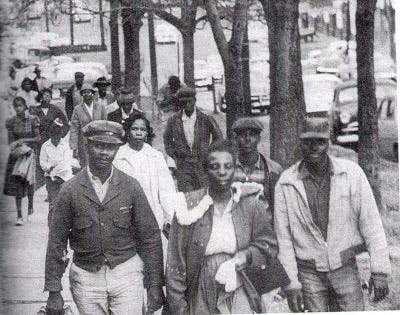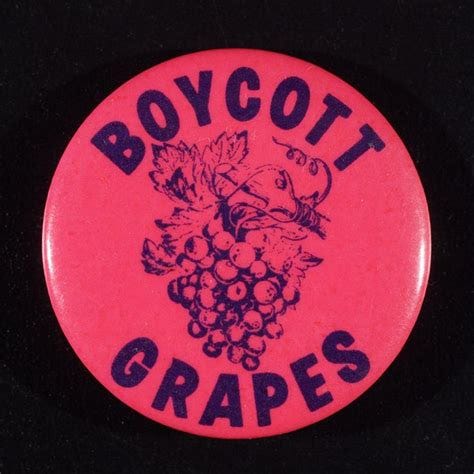We urge all CFOW stalwarts and friends to support the national shopping boycott this Friday, February 28th. A zillion groups are organizing and supporting the boycott, among them the People’s Union. While the chaos and destruction of the Trump administration drives support for the shopping boycott, the organizers are focused especially on the Trump campaign to restore segregation, white supremacy, and traditional patriarchy with its slogans against ‘wokeness” and “DEI” – diversity, equity, and inclusion. As Musk & Trump Inc. are out of reach for the moment, the shopping boycott is focused on the giant retail corporations – Amazon, Walmart, Best Buy, Target, etc. – that have dismantled whatever DEI progams they had so as to comply with Trump’s order and Musk’s threats.
The People’s Union urges us to shop/not shop on Friday in the following way:
The 24 hour Economic Blackout. As our first initial act, we turn it off. For one day we show them who really holds the power. Midnight to midnight, February 28th.
WHAT NOT TO DO:
Do not make any purchases. Do not shop online, or in-store. No Amazon, No Walmart, No Best Buy. Nowhere! Do not spend money on: Fast Food; Gas; Major Retailers. Do not use Credit or Debit Cards for non essential spending
WHAT YOU CAN DO:
Only buy essentials of absolutely necessary (Food, Medicine, Emergency Supplies). If you must spend, ONLY support small, local businesses.
WHY THIS MATTERS!
~ Corporations and banks only care about their bottom line.
~ If we disrupt the economy for just ONE day, it sends a powerful message.
~ If they don't listen (they wont) we make the next blackout longer (We will)
This is our first action. This is how we make history. February 28th. The 24 Hour Economic Black Out Begins.
CAN ECONOMIC BOYCOTTS BE SUCCESSFUL? SOMETIMES, DEPENDING….
Economic boycotts that succeed have several characteristics. They are sustained over a long period of time. They are embedded in a diverse array of supporting actions, including a “corporate campaign” (against a target corporation). They mobilize a broad base of community support. And they highlight strong ethical principles to gain a “moral high ground.”
In our recent history, outstanding boycotts include the Montgomery bus boycott of 1955-56, the California grape boycott of the late 1960s and early 1970s, and the J. P. Stevens boycott in the late 1970s.. In the capsule descriptions below I link mainly to Wikipedia articles, but of course there are many books and analyses about each of these campaigns.
THE MONTGOMERY BUS BOYCOTTS
The Montgomery bus boycott was a political and social protest campaign against the policy of racial segregation on the public transit system of Montgomery, Alabama. It was a foundational event in the civil rights movement in the United States. The campaign lasted from December 5, 1955—the Monday after Rosa Parks, an African-American woman, was arrested for her refusal to surrender her seat to a white person—to December 20, 1956, when the federal ruling Browder v. Gayle took effect, and led to a United States Supreme Court decision that declared the Alabama and Montgomery laws that segregated buses were unconstitutional. (Wikipedia)
Our source has an interesting note on how the African American women of Montgomery mobilized the boycott: “On the night of Parks' arrest, the Women's Political Council, led by Jo Ann Robinson, printed and circulated a flyer throughout Montgomery's black community that read as follows: “
Another woman has been arrested and thrown in jail because she refused to get up out of her seat on the bus for a white person to sit down. It is the second time since the Claudette Colvin case that a Negro woman has been arrested for the same thing. This has to be stopped. Negroes have rights too, for if Negroes did not ride the buses, they could not operate. Three-fourths of the riders are Negro, yet we are arrested, or have to stand over empty seats. If we do not do something to stop these arrests, they will continue. The next time it may be you, or your daughter, or mother. This woman's case will come up on Monday. We are, therefore, asking every Negro to stay off the buses Monday in protest of the arrest and trial. Don't ride the buses to work, to town, to school, or anywhere on Monday. You can afford to stay out of school for one day if you have no other way to go except by bus. You can also afford to stay out of town for one day. If you work, take a cab, or walk. But please, children and grown-ups, don't ride the bus at all on Monday. Please stay off all buses Monday.
For a year the Black people of Montgomery walked to work, or organized ride sharing and taxi services. While church leaders (MLKing et al.) and lawyers guided the public diplomacy and legal challenges moving toward desegregation of city buses, the sustained grass roots support of the Black community made victory possible.
THE DELANO, CALIFORNIA GRAPE BOYCOTT
After decades of hardship, California farm workers began a strike in September 1965. Anglo, Mexican, and Filipino farm workers unions merged their fight into the United Farm Workers Organizing Committee. The strike lasted 5 years., involving more than 10,000 workers.
“A key element in the farm workers victory was a consumer boycott of non-union grapes. The grape strike officially began in Delano in September 1965. In December, union representatives traveled from California to New York, Washington, D.C., Pittsburgh, Detroit, and other large cities to encourage a boycott of grapes grown at ranches without UFW contracts. In the summer of 1966, unions and religious groups from Seattle and Portland endorsed the boycott. Supporters formed a boycott committee in Vancouver, prompting an outpouring of support from Canadians that would continue throughout the following years. In 1967, UFW supporters in Oregon began picketing stores in Eugene, Salem, and Portland. After melon workers went on strike in Texas, growers held the first union representation elections in the region, and the UFW became the first union to ever sign a contract with a grower in Texas.” (Wikipedia)
In the late 1960s civil rights groups spread the boycott to the South, students groups mobilized on many campuses. An interesting map, UFW Strikes, Boycotts, and Farm Worker Actions 1965-1975, shows over 1,000 farm work strikes, boycotts, and other actions.
THE J. P. STEVENS STRIKE (1976-1980)
The J. P. Stevens strike is perhaps best known via the film “Norma Rae.” The textile workers union ACTWU worked to organize 3,000 workers into unions in North and South Carolina and Alabama. Initially emphasis was put on a worldwide consumer boycott, as well as strikes and picketing, but this was not successful. Victory was achieved via a “corporate campaign,” described here by the New York Times labor reporter.
"Pressure on giant banks and insurance companies and other Wall Street pillars, all aimed at isolating Stevens from the financial community, helped generate a momentum … that could not be achieved through the 1976-1980 worldwide boycott of Stevens products or through more conventional uses of union muscle such as strikes and mass picketing." Raskin quoted Ray Rogers: "We took the strength of the company and made that its weakness… We forced the power elite behind J.P. Stevens — its principal lenders and companies with which it had interlocking directorates; to put the squeeze on it." [Reference]
“Boycott” buttons and picket signs proliferated, often accompanying shareholder or other action at J. P. Stevens meetings. In the case of this strike, the role of economic boycott was one way for “consumers” to support the strike, perhaps bringing them into support networks and demonstrations. But the boycott, though important, was not the road to victory, the “corporate campaign” was. [Many great pictures here.]
SUMMARY THOUGHTS
As noted about, organizers of Friday’s shopping boycott do next expect “success,” in the form of Amazon or Best Buy restoring programs supporting equity and inclusion for their workers. They speak of a second round. For now, the shopping boycott is like spring training: we’re learning the ropes, learning a little of what works and what doesn’t. Going forward, I think that the effective of shopping boycotts will be strongly affected by the extent to which they are embedded in larger campaigns, in mobilizing communities on a single or specific target, and combine the boycott with movements or organizations that have a broad reach.
Comments? Ideas? Please write down your thoughts below. And NO SHOPPING ON FRIDAY! We can do it.



